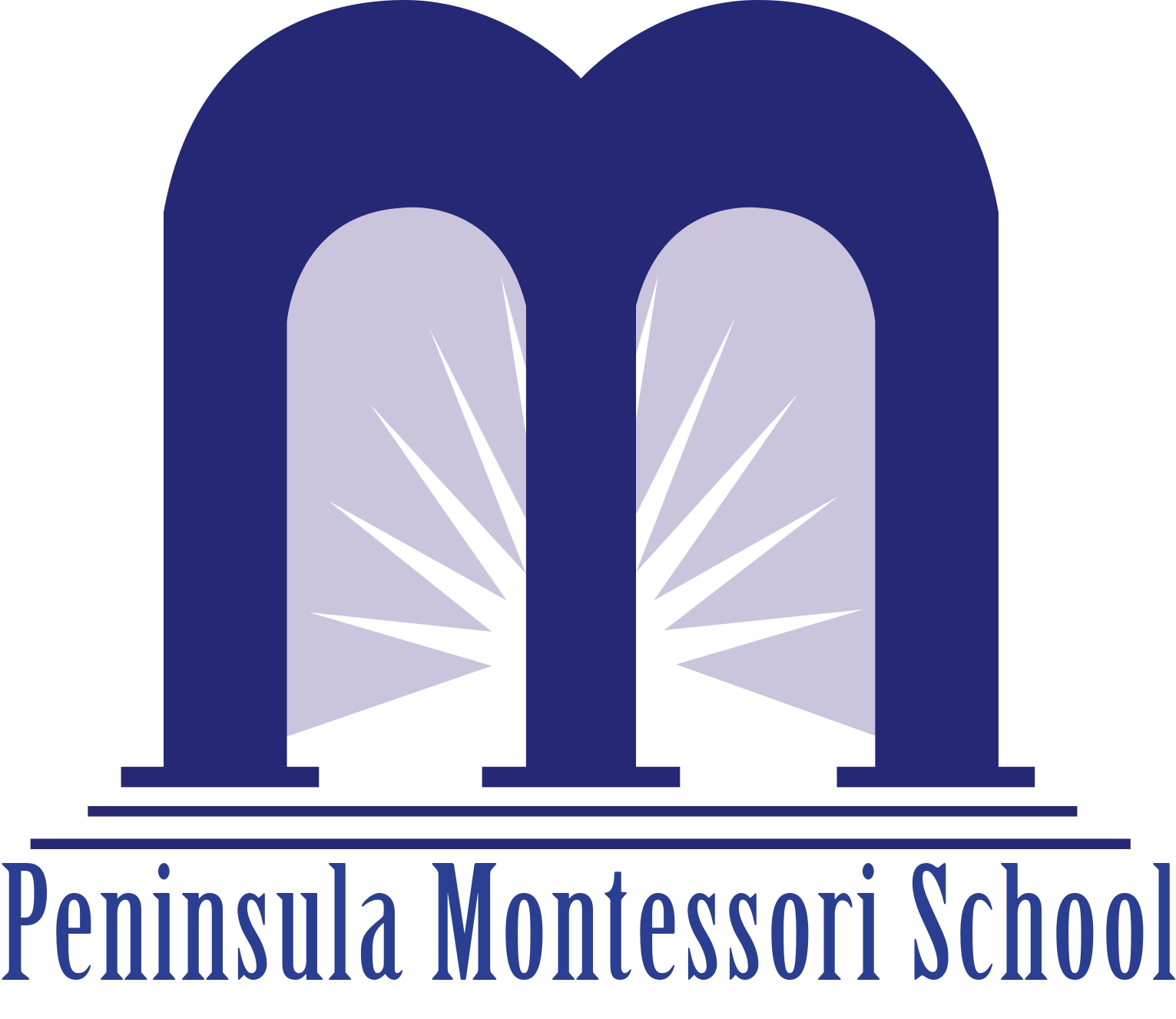Montessori Program Levels
At Peninsula Montessori, our programs are designed to address the characteristics normal to children in each stage of their development. Montessori classes are organized to encompass a two- or three-year age span, which allows younger students the stimulation of older children, who in turn benefit from serving as role models.
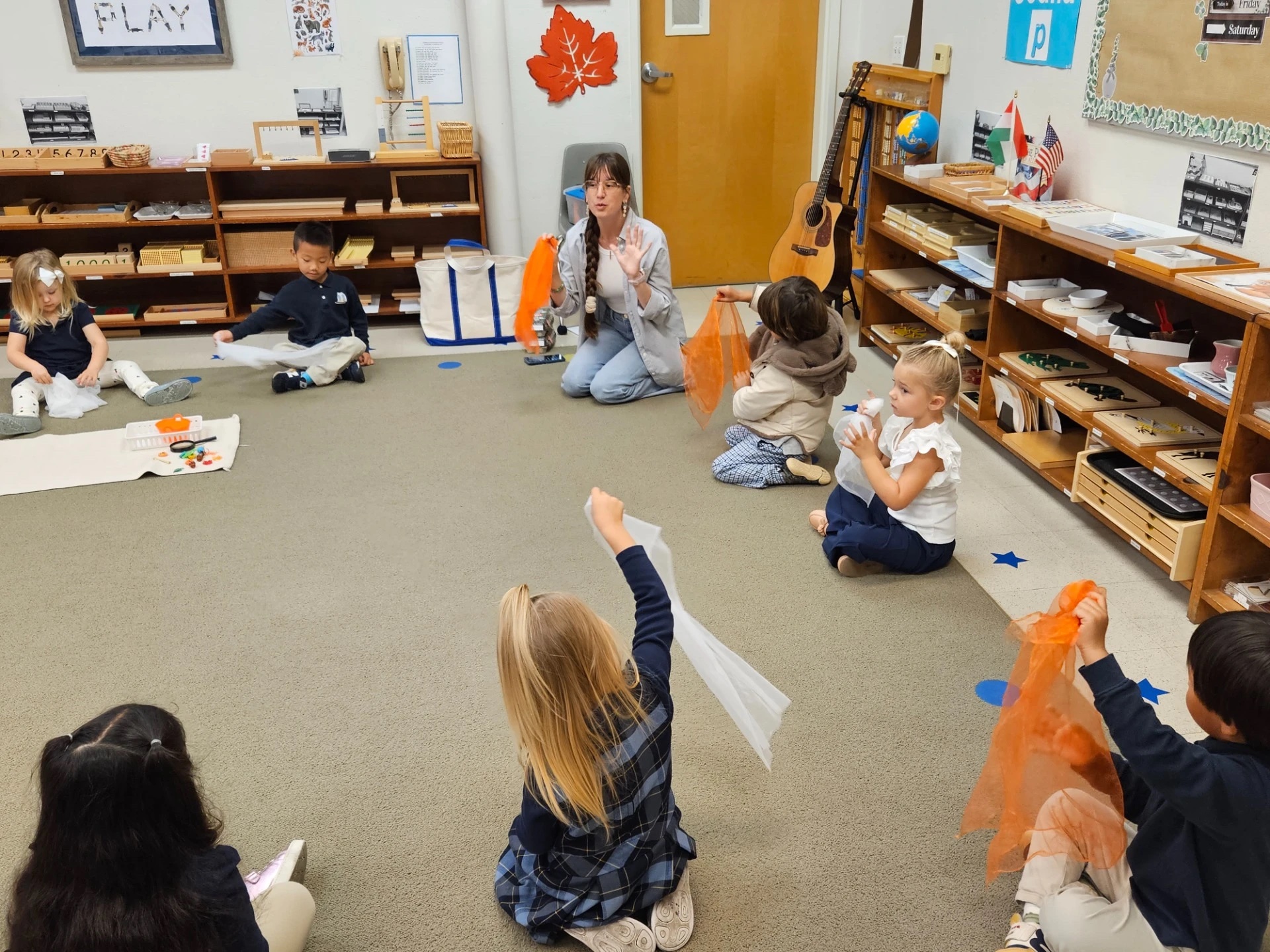
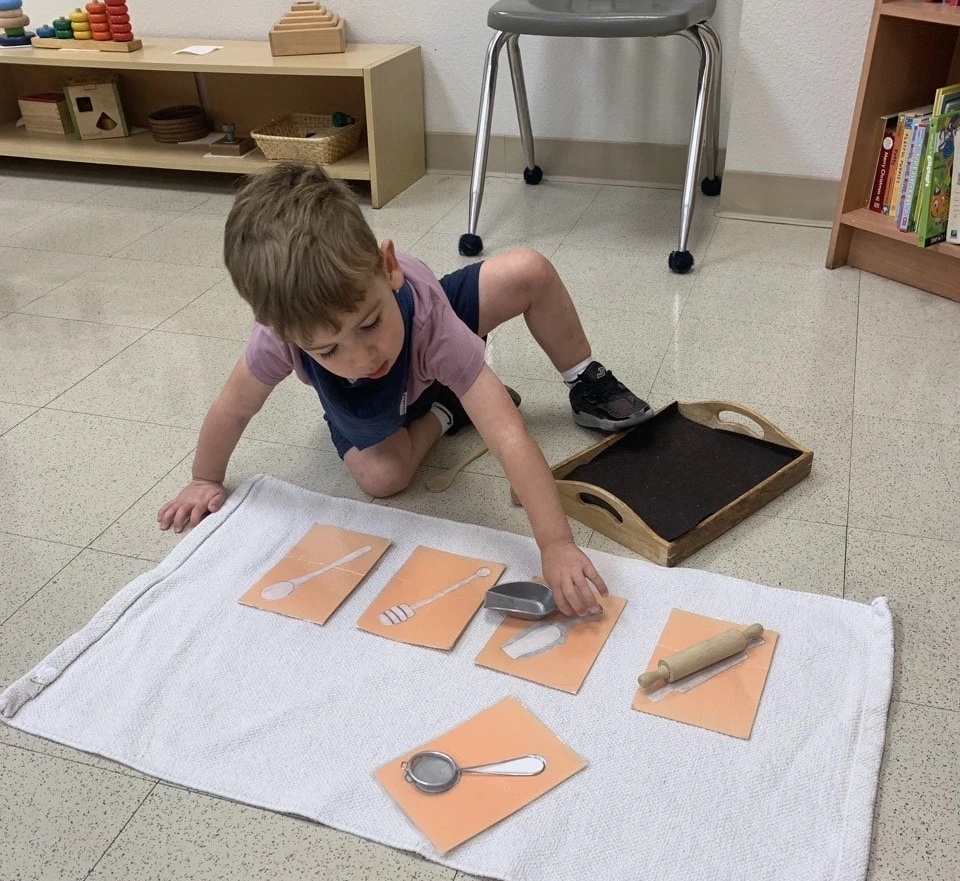
Toddler program
The goal is to provide a specific structure which fulfills the social, physical, emotional, and psychological needs of each child. The toddler environment allows space for movement, individual work, and group activities. The design of the environment is proportionate to the child’s size. The children in the toddler program are given the opportunity to develop skills in language, art, music, sensorial, and practical life.
The main emphasis of the toddler curriculum is in the Practical Life area. Here, the children are given the chance to develop skills to care for themselves and their environment, such as toilet training, control of movement, and respecting self and others. Through song and dance, and freedom of choice, the toddlers will have a variety of large muscle activities that offer them opportunities to crawl, climb, balance, jump, and skip.
Pre-Primary Program
Children under the age of 6 have an extraordinary ability to absorb knowledge from their environment.
Dr. Montessori referred to children at this age as having an absorbent mind. The Pre-primary classroom is made up of children ranging in age from 2 ½ to 5 years. In the multi-age setting, the children learn from each other, and they learn because of each other. The younger children have the opportunity to see what they will be learning in the future. The older children have the chance to reinforce their knowledge by sharing it with those who follow. In turn, this process fosters a positive self esteem in the developing youth. The children learn to be independent by taking an active role in maintaining their classroom, choosing work and putting the work back in its proper place, or simply serving themselves a snack and cleaning up after themselves.
The curriculum has 5 distinct categories: Language, Math, Sensorial, Practical Life, and Cultural. The Language work includes phonetic language development, children’s literature, reading, and writing expression. Mathematics begins with very concrete ideas and concepts and progresses towards the abstract. The children do not merely learn to count, they understand the concept of “how many” because they hold the amount in their hands.
In the Sensorial curriculum the children learn to clarify, classify, and comprehend their world through sight, touch, sound, taste and smell. The skills of everyday life are taught in the Practical Life exercises. Activities such as zipping, pouring, sweeping, tying, cleaning, and gardening will be presented. In addition, the children develop skills in grace and courtesy. Within the Cultural curriculum the children participate in art projects, explore the world with geography puzzle maps, develop a knowledge and respect for animals in zoology, and learn the basics of botany. The various lessons that are given are presented to the children either individually, in small groups, or during circle time in a large group.
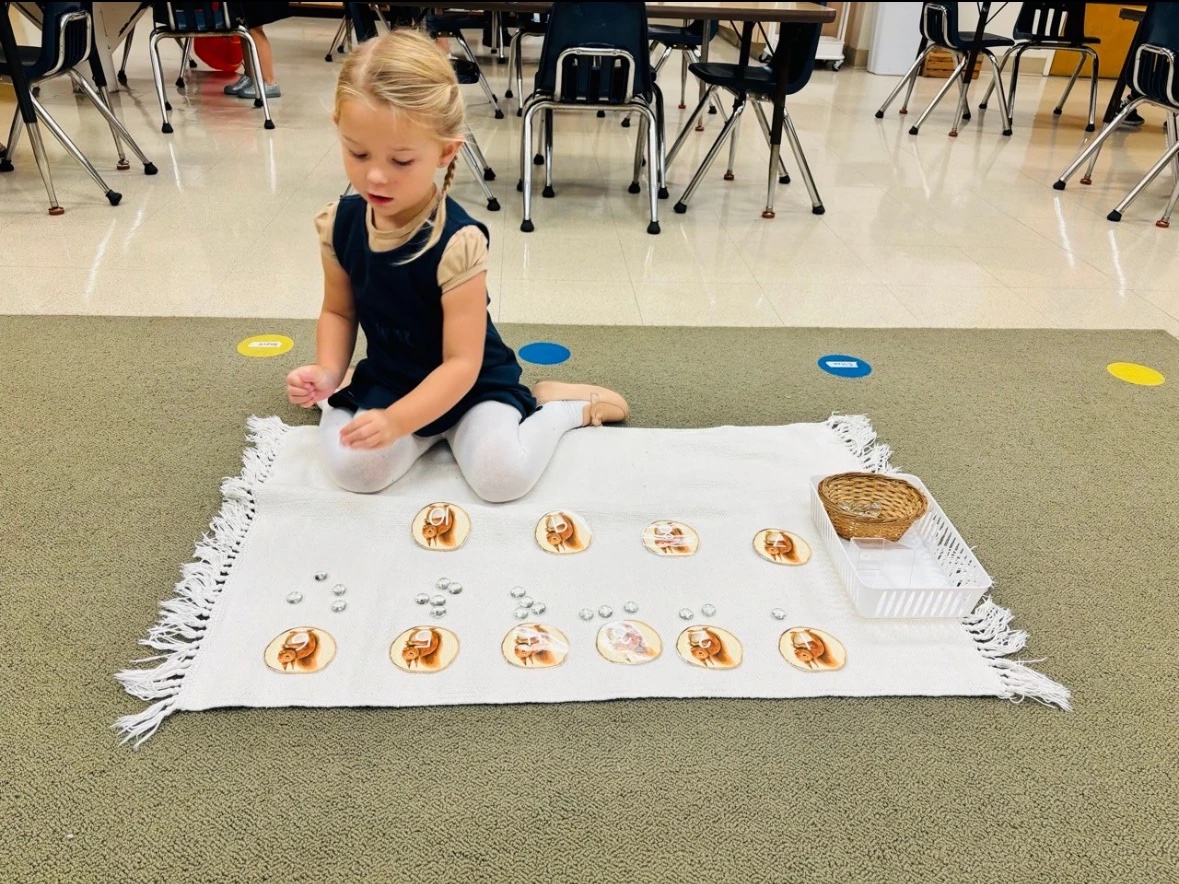
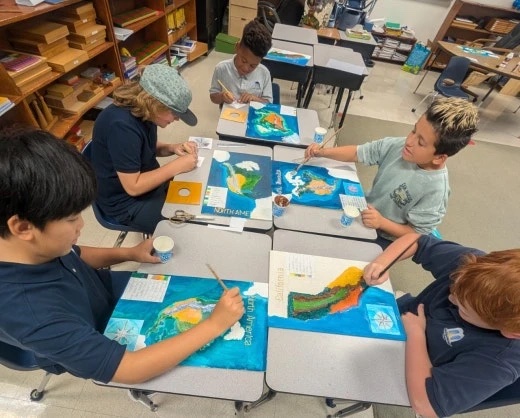
Transition & Elementary Programs (Palos Verdes Campus only)
The children at the elementary level develop a considerable degree of intellectual consciousness.
The progression to the second level of education is the passage from the concrete to the abstract. In the elementary classroom the teachers integrate parts of the curriculum, such as science, geography, art, history, and language, not as isolated disciplines, but as part of a whole intellectual process. The use of picture charts, time lines, and other visual aids provide a linguistic and visual overview of the first principles of zoology, geology, anthropology, and geography.
Another aspect of the Montessori elementary education is the child’s exploration of his or her own morality. It is important that the individual learn these real-life issues in a practical setting, rather than simply reading about it in textbooks.
The lessons that are given in the elementary program regarding grace and courtesy are an extension of what was taught at the Pre-primary level. A major goal of the elementary program is to help each child learn to develop positive relationships with family and friends, as well as the global community. This is the child’s first step into the real world.
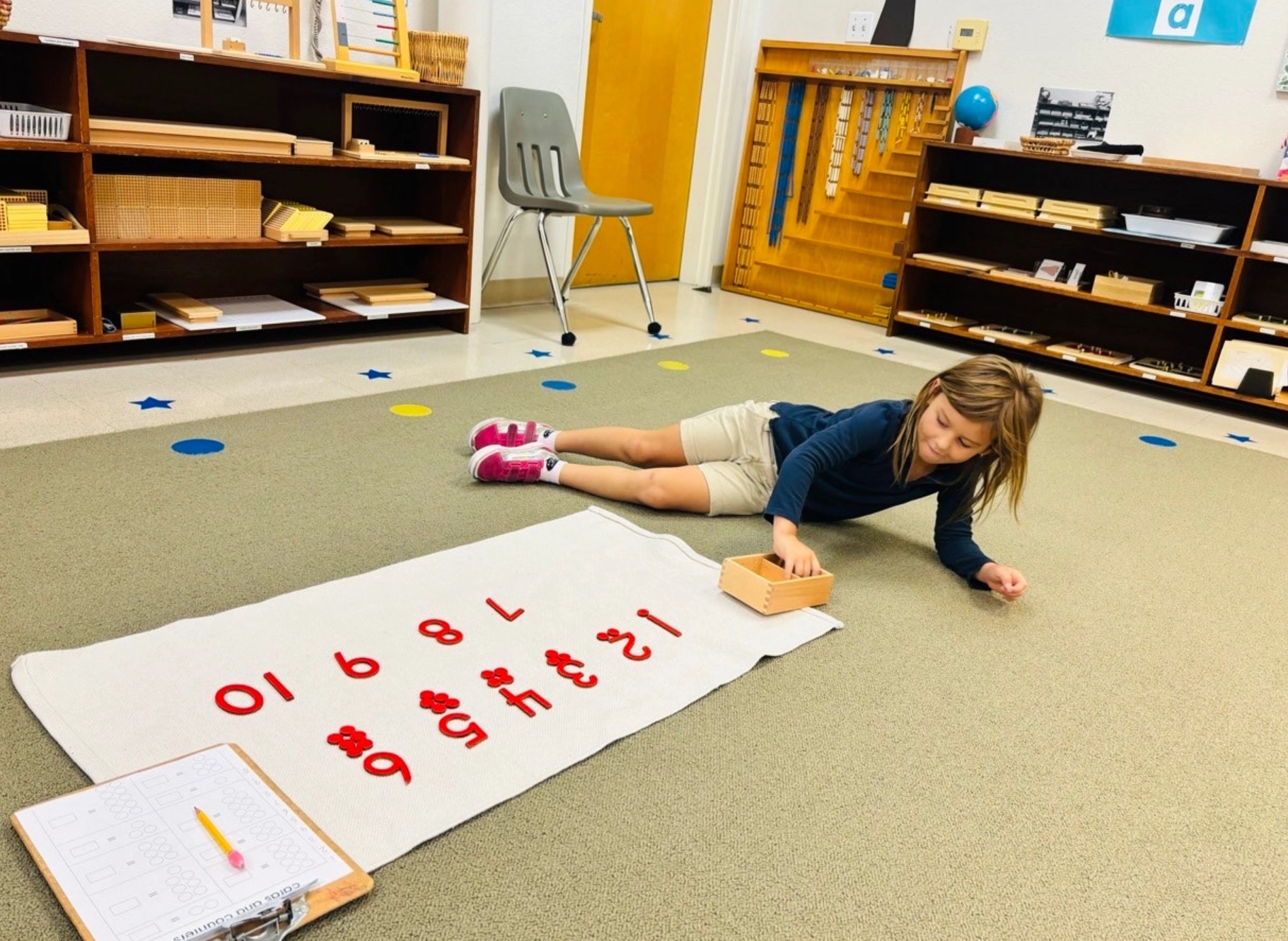
Extended Child Care (Before and After School)
Palos Verdes Campus
Extended Child Care is available for students between the hours of 8:00 am and from 3:15 pm – 5:00 pm. There is a ten minute grace period from 4:50 pm – 5:00 pm. Any service provided after 5:00 pm is subject to charge of $5.00 per minute. (Child Care is not available for the toddler program.)
Extended Child-Care Fees are as follow:
$15.00 Per hour
$45.00 Maximum per day
$600.00 Maximum per month
Child-Care is available on all school days, selective half-days and school closure days.
Redondo Beach Campus
Extended Child Care is available for students between the hours of 8:00 am and 9:00 am and from 3:00 pm -5:00 pm. There is a ten minute grace period from 4:50 pm -5:00 pm. Any service provided after 5:00 pm is subject to a charge of $5.00 per minute. (Child Care is not available for the toddler program.)
Extended Child-Care Fees are as follows:
$15.00 per hour
$45.00 Maximum per day
$600.00 Maximum per month
Child-Care is available on all school days, selective half-days and school closure days.
